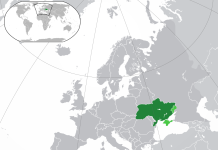Shubo Mahalaya is misnomer it is better to call “Om Shanti in Mahalaya”
By Suman Munshi, Diploma in Palmistry, Vastu, Fengsui and Numerology from Vedic Astrology Institute
What are Pitri Pakhsha and Devi Paksha?
There are 24 Paksha in 12 months of the year, 2 of which are particularly significant. The first is the Pitri Pakhsha and the second is the Devi Paksha.
The date of Ashwin’s Krishna side is called Mahalaya. This Krishna Paksha is called the other Paksha or the Pitri Pakhsha. Parvan Shraddha and Tarpan are performed on behalf of the father for the sake of the heavenly father. At this time the fathers came to the mortal world from the Yamalaya. Sesame, water, are donated to satisfy them. And meteorites are used to illuminate their journey.
It is said in the Mahabharata that when the soul of Mahavira Karna went to heaven, he was allowed to eat only gold and riches. ‘What’s the matter?’ Karna asked Indra. Indra said, ‘You have given gold all your life, you have not given water to your father. So this arrangement is for you. ‘ Karna said, ‘What is my fault? I found out about my father and forefathers the night before the war started. Mother Kunti came to me and said, I am his son. Then he died at the hands of his brother in the war. I did not get the time of Pitri Pakhsha. ‘ Indra understood that it was not Karna’s fault. So he allowed Karna to go back to earth for fifteen days and give water and food to his father.
According to Indra’s words, Karna stayed in the mortal world for a fortnight and gave food and water to his father. His sins were forgiven and the “Paksha” that Karna came to earth and gave water to his father became known as the “Pitri Pakhsha”.
Various important information about Pitri Pakhsha and Devi Pakshaes and tarpana rules:
In this new moon, after the Pitri Pakhsha worship, the latter has to engage in Devi Paksha worship. Therefore, the Paksha of Devi Paksha worship is called Devipaksha or Matripaksha, Mahalaya is the last day of the Pitri Pakhsha and the day before the beginning of the Devi Paksha party, one has to enter into the pursuit of strength for the Devi Paksha by self-restraint.
The primordial power of the divine power, He is omnipresent. He is the Beneficent, the Merciful. This day is called mahalaya because the devotee has the opportunity to enter the great abode of the Devi Paksha in order to get the Devi’s blessing. After Mahalaya, worship of Devi Paksha starts from the date of Pratipada. In some areas, the worship of Devi Paksha starts from Pratipada. Here, in Bengal the worship of Devi Paksha starts from the sixth date. There are two ways of worshiping the Devi Paksha.
According to Hinduism, the Pitri Pakhsha is a special aspect that is wide enough for the ancestral “Tarpan” related task. This party is also known as Pitrupaksha, Shola Shraddha, Kanagat, Jitia, Mahalaya Paksha and Apara Paksha.
According to Hindu belief, since death rituals such as souls work (shraddha), tarpana, etc. are performed on the father’s side, this party is not conducive to good deeds. In South and West India, this party begins on the date of the next full moon (Bhadra Purnima) of the Ganesha festival and ends on the Sarvapitra Amabasya, Mahalaya Amabasya or Mahalaya Dibas. In northern India and Nepal, the Krishna Paksha of the month of Ashwin is called the Pitri Pakhsha instead of Bhadra.
According to Hindu mythology, the ancestor lived up to three generations before the immediate living person. This man is situated between heaven and earth. Yam, the god of death, the ruler of the Pitrilok. He is the one who takes the soul of the newly dead person from the mortal to the Pitrilok. When one of the next generation dies, one of the ancestors of the previous generation leaves and ascends to heaven and merges in Paramatma (God) and in this process he ascends above the rites. For this reason, only the previous three generations of the living person are commemorated; And yam plays an important role in this sraddhanusthan.
According to the Hindu epic (known as history in Hindu scriptures), the Pitri Pakhsha is signified when the Sun enters Virgo. According to folklore, at this time the ancestors left the Pitrilok and stayed in the house of their descendants. After that, when the Sun enters Scorpio, they go back to their ancestors. The first aspect of the position of the fathers is that the Hindus have to make tarpanadis for the sake of the fore fathers.
The names of the fifteen dates of the Mahalaya party are Pratipada, Dwitiya, Tritiya, Chaturthi, Panchami, Sasthi, Saptami, Ashtami, Nabami, Dashami, Ekadashi, Dvadashi, Triodashi, Chaturdashi and Amaabsya. According to Hindu belief, a person who wishes to perform tarpan has to perform tarpan on the date of his father’s death.
Shraddhanusthan by the son on the father’s side is a must in Hinduism. As a result of this ceremony, the soul of the deceased gets access to heaven. In this context, the Garuda Purana says, “There is no release without a son.” The scriptures instruct the householders to be patriarchal with gods, ghosts and guests. The Markandeya Purana says that when the fathers are satisfied with shraddha, they give health, wealth, knowledge and longevity and finally heaven and salvation to the descendants.
Those who are unable to attend the annual Shraddhanusthan can be freed from Pitri Pakhsha by observing the All-Father New Moon. According to Sharma, Shraddha is the main ritual of the dynasty. In this ceremony, lumps and water are provided for the purpose of the previous three men, their names are high.
So Shubo Mahalaya is misnomer it is better to call “Om Shanti Mahalaya”.




















